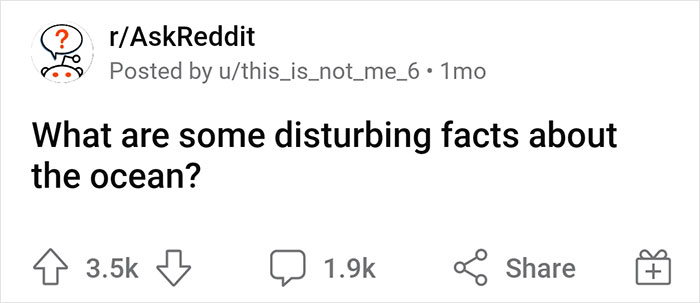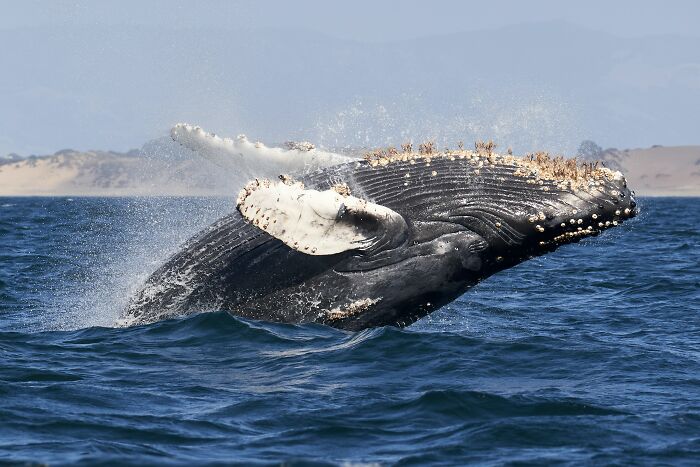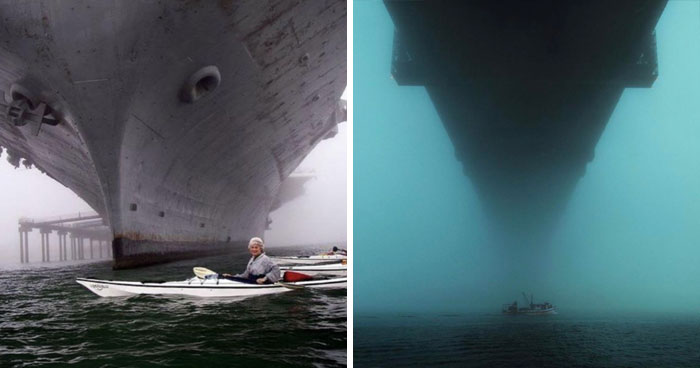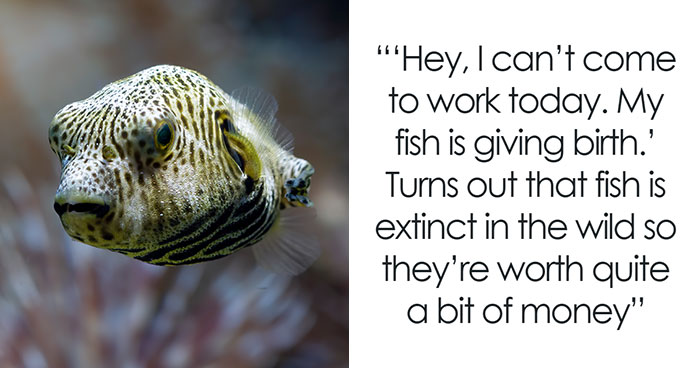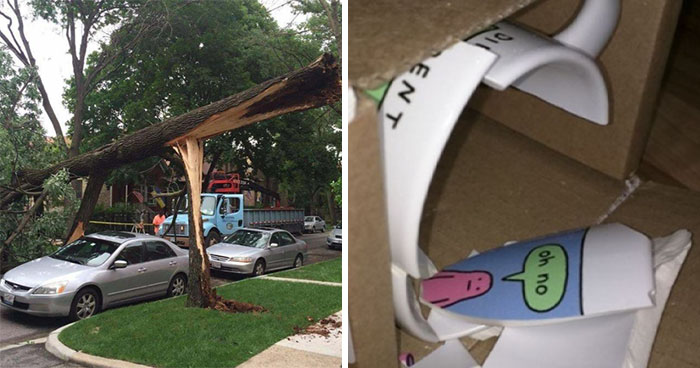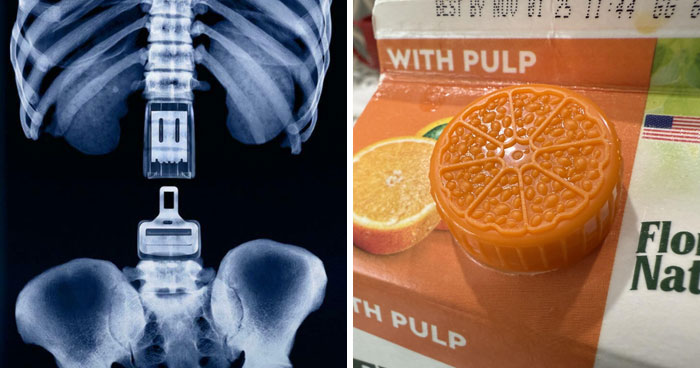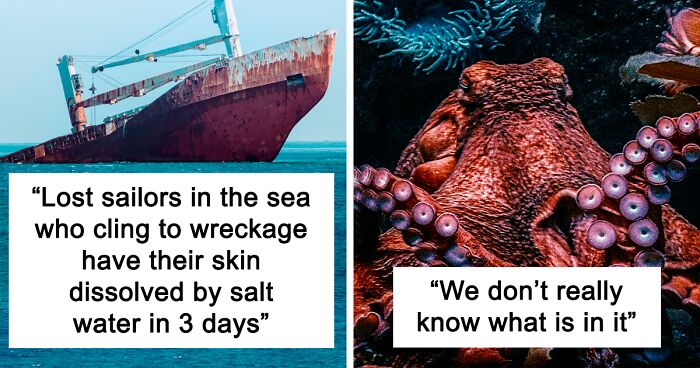
30 Of The Creepiest Facts About The Ocean You Might Wish You Never Knew, As Shared In This Online Thread
No wonder there are so many horror movies made about the ocean. Think of Deep Blue Sea and Jaws, and it’s clear that our ocean anxiety has long been lingering.
But you don’t need Hollywood to find out what happens there. Check out our previous article that features chilling stories from sailors, scuba divers, and surfers who have seen things in the ocean they’d much rather unsee.
This time, we are taking you on a similar ride into the deep waters with this viral thread that has people sharing the most disturbing facts about the ocean. Let’s start with the fact that only 5% of the ocean floor has been explored and I'll just leave it here.
This post may include affiliate links.
Overthinking Level Expert
 I remember watching a YouTube interview with a military diver. He described how when you’re doing a covert op you spend a lot of time just underwater doing nothing with no lights on until it’s time to move.
He specifically mentioned how he had to get used to having large things bump into him in the pitch black.
I remember watching a YouTube interview with a military diver. He described how when you’re doing a covert op you spend a lot of time just underwater doing nothing with no lights on until it’s time to move.
He specifically mentioned how he had to get used to having large things bump into him in the pitch black.
When we talk about oceans, we cannot ignore how tragically polluted it is. With each passing year, we expose the ocean to more pollutants, from trash to chemicals, industrial and agricultural waste, particles, excess carbon dioxide, and many others.
“What's really startling is how widespread human pollution is in the ocean,” Heather Spence, Marine Biologist orchestrating Coastal Marine Ecology Investigation and Outreach, told Bored Panda in an interview via email. Spence also researches underwater sound and noise on the MesoAmerican Reef that you check on her website "Ocean World Of Sound".
Mostly Blue and Wet
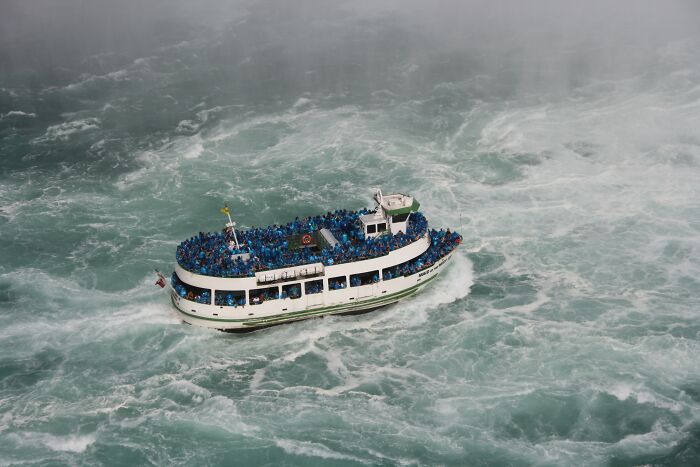 It doesn't hate you. It doesn't love you. It doesn't even know you exist. When it destroys/capsizes your boat your boat didn't even cause a change in its movements.
I am a sailor and I am in love with a cold heartless b***h who couldn't care less whether I live or die.
It doesn't hate you. It doesn't love you. It doesn't even know you exist. When it destroys/capsizes your boat your boat didn't even cause a change in its movements.
I am a sailor and I am in love with a cold heartless b***h who couldn't care less whether I live or die.
Heavy Lifting, Light Attitude
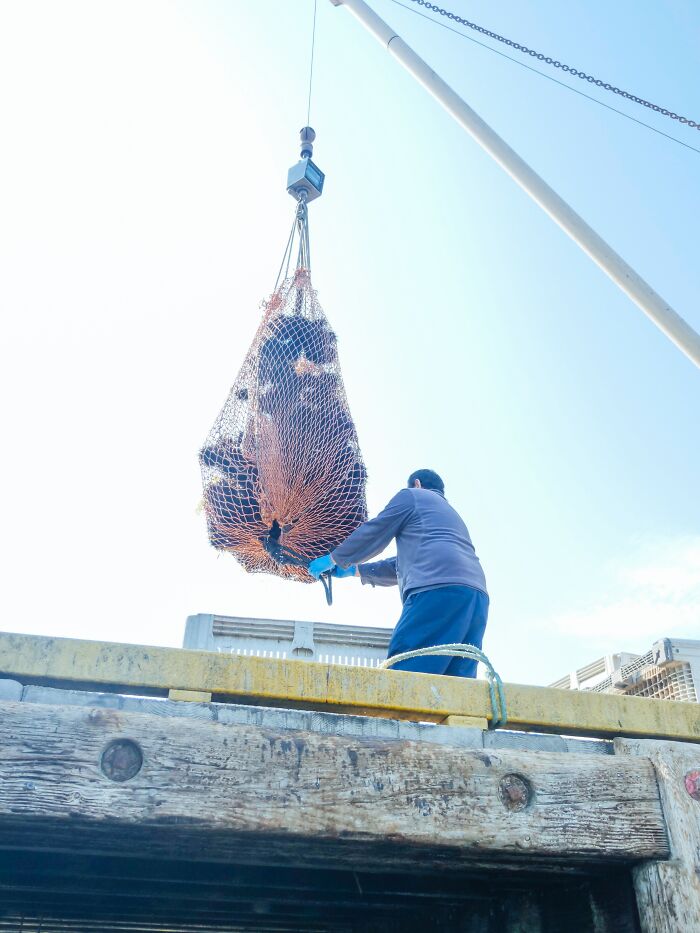 Most of the plastic pollution in the ocean is not from straws, shopping bags, or consumer items as most of us were led to believe.
It’s from fishing nets and fishing gear.
Most of the plastic pollution in the ocean is not from straws, shopping bags, or consumer items as most of us were led to believe.
It’s from fishing nets and fishing gear.
“I don't know of any place, no matter how remote, that doesn't have evidence of human pollution. And since waste products of human activities continue to go into the ocean, you could say the situation is getting worse,” she said.
Spence explained that short-term effects of ocean pollution include changes in animal behavior and sickness or death of marine organisms. “Long-term effects include these on larger scales and larger numbers of affected organisms, but also domino effects as decline or changes in one species impact other species that rely on them. For example, corals form the structure of coral reefs and if they die, it is a big problem for the whole ecosystem,” she said.
Silent Depths Ahead
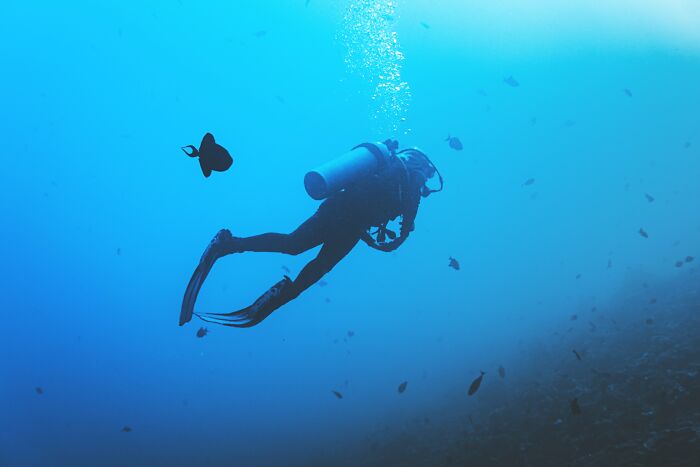 I’m a scuba diver and one thing that really scared me when I first started off diving, you hear SO MUCH more underwater then you ever will above on the surface, I’m not even talking about like the shifting or just the water itself moving, your hear things like fish clicking and other things like that, cuz underwater sounds move and travel a lot more so you hear a lot more and much quicker, was pretty out of nowhere when I first went under
I’m a scuba diver and one thing that really scared me when I first started off diving, you hear SO MUCH more underwater then you ever will above on the surface, I’m not even talking about like the shifting or just the water itself moving, your hear things like fish clicking and other things like that, cuz underwater sounds move and travel a lot more so you hear a lot more and much quicker, was pretty out of nowhere when I first went under
You also hear a wider range of wavelengths. Deeper sounds can only get to your eardrums via water. It's like showing color to a color blind person.
Deep Sea Hideout
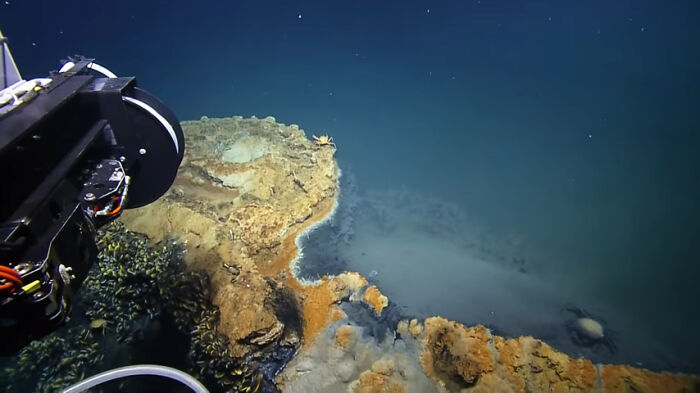 "Hot tub of despair" is a lake under the ocean, in the gulf of Mexico. It is highly concentrated with salt and has dissolved methane. Any creature that enters dies.
"Hot tub of despair" is a lake under the ocean, in the gulf of Mexico. It is highly concentrated with salt and has dissolved methane. Any creature that enters dies.
Eight Arms, No Problem
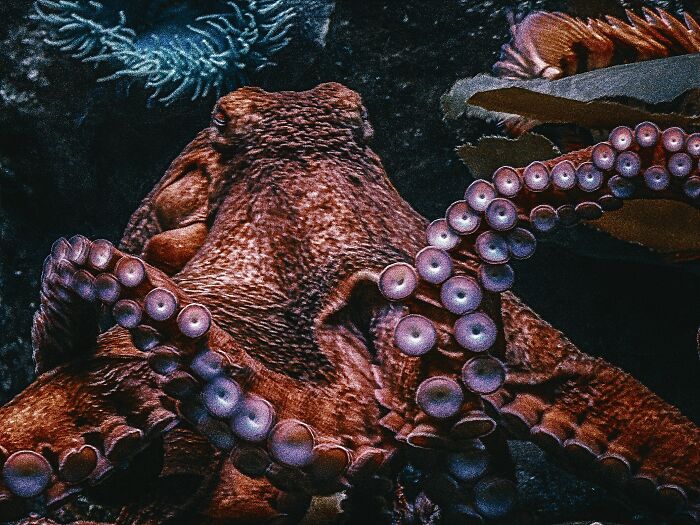 We don't really know whats it in I can say that for thousands of years we drew sea monsters beliving they lived in it. Surprising alot of stuff we found in those pictures were in the ocean. (Giant Squid recently ). Just makes you think what else is actually down there that we don't know about.
We don't really know whats it in I can say that for thousands of years we drew sea monsters beliving they lived in it. Surprising alot of stuff we found in those pictures were in the ocean. (Giant Squid recently ). Just makes you think what else is actually down there that we don't know about.
These are one of the reasons I believe most of the creatures we depict as myths or fantasy might actually exist or must have existed
“Other effects are to humans - even in the short term and certainly in the long term, we can get sick from contaminated seafood or swimming in contaminated water, and livelihoods and quality of life are impacted from the degradation of marine and coastal areas.”
There are many ocean polluters, including plastics that Spence calls “a huge problem.” Then, there are chemicals from runoff from land. “An invisible one is a noise, yet it is also extremely impactful since sound travels very well underwater and marine animals use sound to communicate and navigate.”
Anchored in the Deep
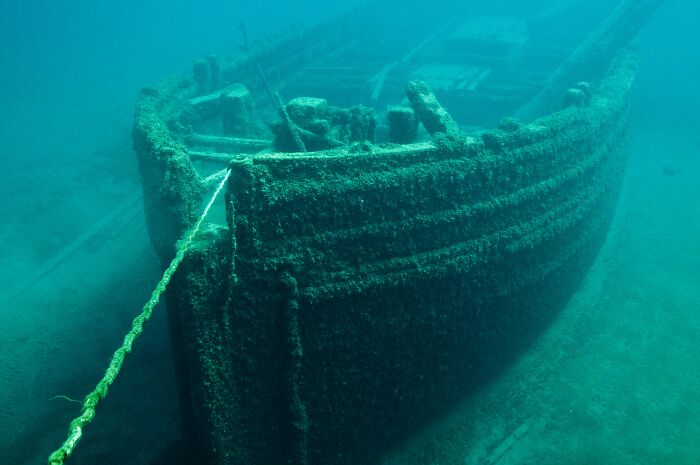 There are perfectly-preserved shipwrecks from ancient Greece preserved at the bottom of the Black Sea. The water is so deep that it becomes anoxic (oxygen free), which preserves organic materials like wood.
Shipwrecks are cool, but I find the phenomenon a little disturbing, since there is probably no life down there.
There are perfectly-preserved shipwrecks from ancient Greece preserved at the bottom of the Black Sea. The water is so deep that it becomes anoxic (oxygen free), which preserves organic materials like wood.
Shipwrecks are cool, but I find the phenomenon a little disturbing, since there is probably no life down there.
not all life needs oxygen, there are bacterias that can exist in oxygen-free environments
Glow in the Dark Vibes
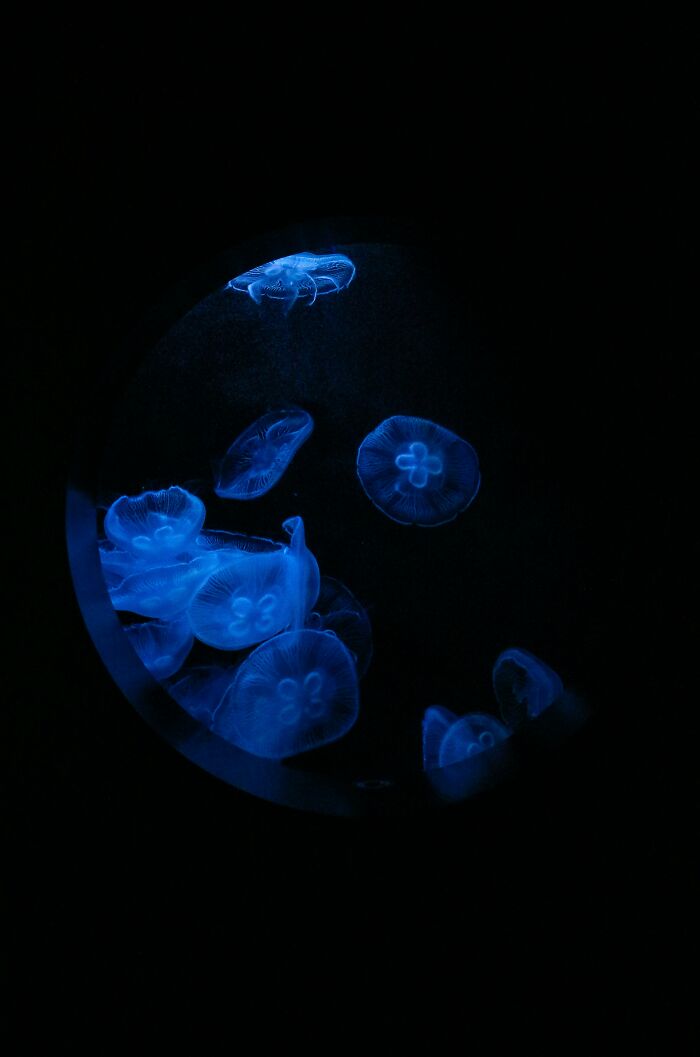 The largest biomass migration takes place every night when deep sea animals come up to feed
The largest biomass migration takes place every night when deep sea animals come up to feed
Silent Depths Speak
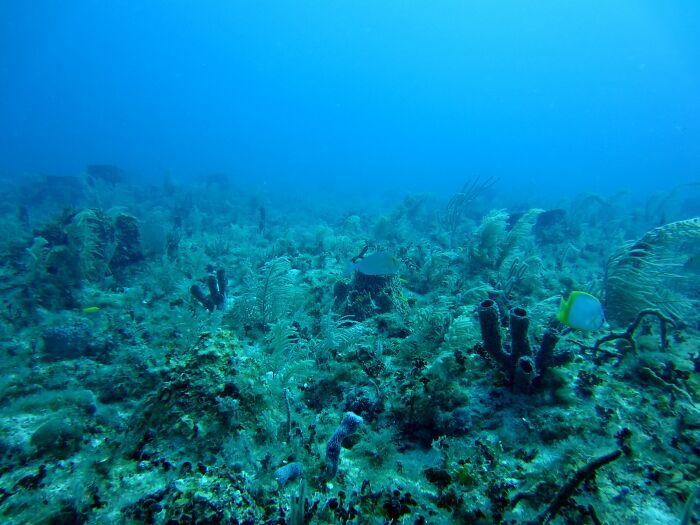 Only 5% of the entire ocean in the world has been discovered, that means that there is still 95% unmapped.
Only 5% of the entire ocean in the world has been discovered, that means that there is still 95% unmapped.
Don't go too deep. We'll stumble upon Ry'leh and be doomed. Wait, no, it's fine. I need a little Cthulhu in my life.
Having said that, Spence added that she likes to frame problems with the positive side of solutions. “When people feel hopeless or helpless, they may make short-sighted decisions, so it is important to maintain hope,” she said.
“We are currently at the start of the UN Decade of Ocean Science for Sustainable Development. Globally, scientists, policymakers, and creatives are coming together to discuss the best ways to respect, protect, and work with ocean systems. We are looking for win-win solutions that recognize humans are not just actors but members of ocean ecosystems. We need to remember that just as humans can be the problem, we can also be the solution. And we need to be practical about it.”
Rust Never Sleeps
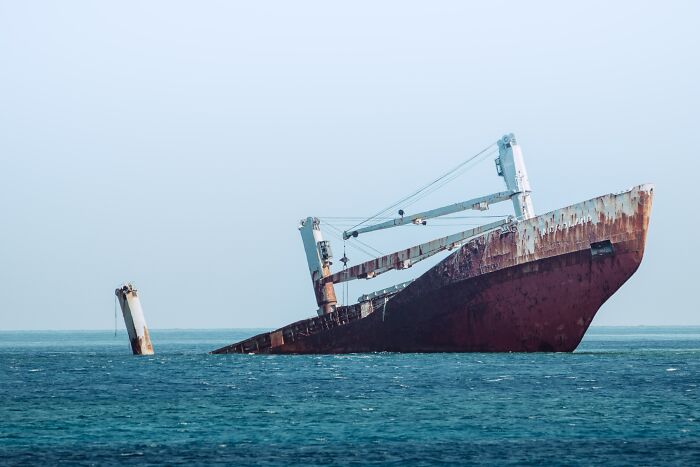 Lost sailors in the sea who cling to wreckage basically have their skin dissolved by salt water after soaking for more than 3 days.
Lost sailors in the sea who cling to wreckage basically have their skin dissolved by salt water after soaking for more than 3 days.
See Also:
Silent Ocean Stare
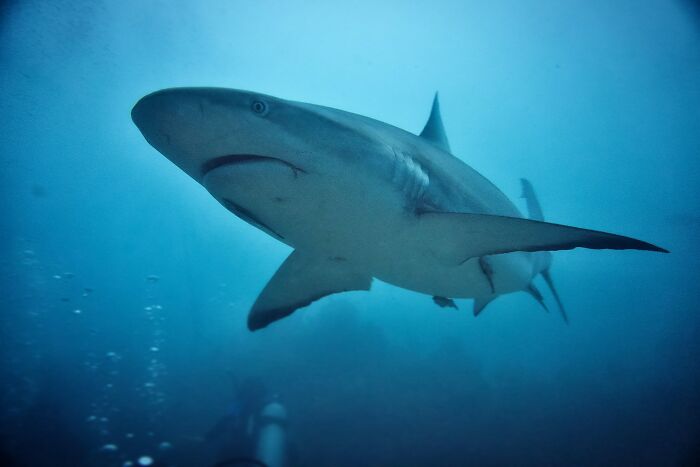 When you dip your toe in the water you are no longer at the top of the food chain.
When you dip your toe in the water you are no longer at the top of the food chain.
Ok, I realize... city people. I live in an area, where I meet bears more often than I would like to. You're not on top on land either. Learn respect :D
This story is corroborated by the survivors. During one of the world wars, a ship was sunk and 11 survivors clung to a lifeboat until one of them was dragged down into the abyss by a "cephalopod". If he wasn't killed by the animal's beak, he would have died a horrific pressure death while the cephalopod probably rapidly descended with it's life prey. It's not possible to say which species this cephalopod belonged to, but the Giant Squid and Colossal Squid are the largest and heaviest known so far. And some scientists speculate there might lurk an even more massive species of cephalopods deep down in the ocean. And whenever you sail by boat and look down into the deep blue darkness of the ocean, remember that the probability will never be zero to be suddenly grabbed by one and dragged down into the total darkness, dying a horrible, horrible death.
Spence has an example of one win-win solution which has to do with noise from boat motors. “The noise is not the purpose of the motor. It is a byproduct of energy lost in the form of sound. Reducing that sound at the source improves motor efficiency and reduces environmental impact.”
Liquid Whirlwind
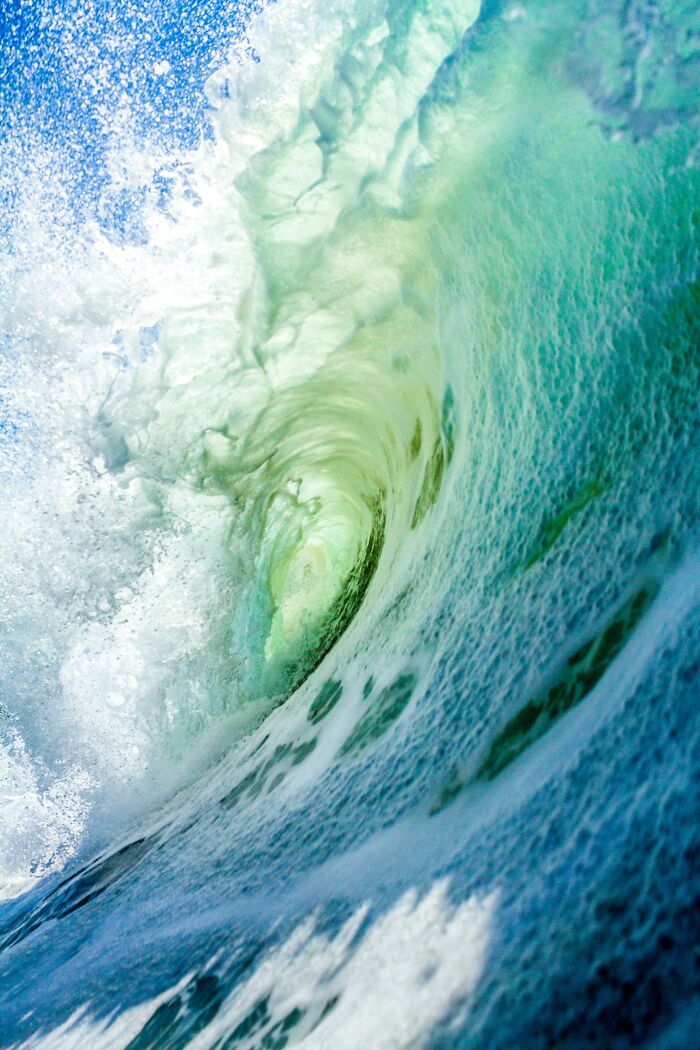 I tell new scuba divers this: The ocean doesn’t care about you. It’s not actively trying to kill you. But it will do a lot of things on its own that will absolutely kill you if you’re not prepared and paying attention.
I realize this could apply to any natural environment but it feels much more apt when talking about the ocean. One wave that you weren’t prepared for can make your day pretty bad. For the ocean it’s just business as usual.
I tell new scuba divers this: The ocean doesn’t care about you. It’s not actively trying to kill you. But it will do a lot of things on its own that will absolutely kill you if you’re not prepared and paying attention.
I realize this could apply to any natural environment but it feels much more apt when talking about the ocean. One wave that you weren’t prepared for can make your day pretty bad. For the ocean it’s just business as usual.
Caught Between Waves
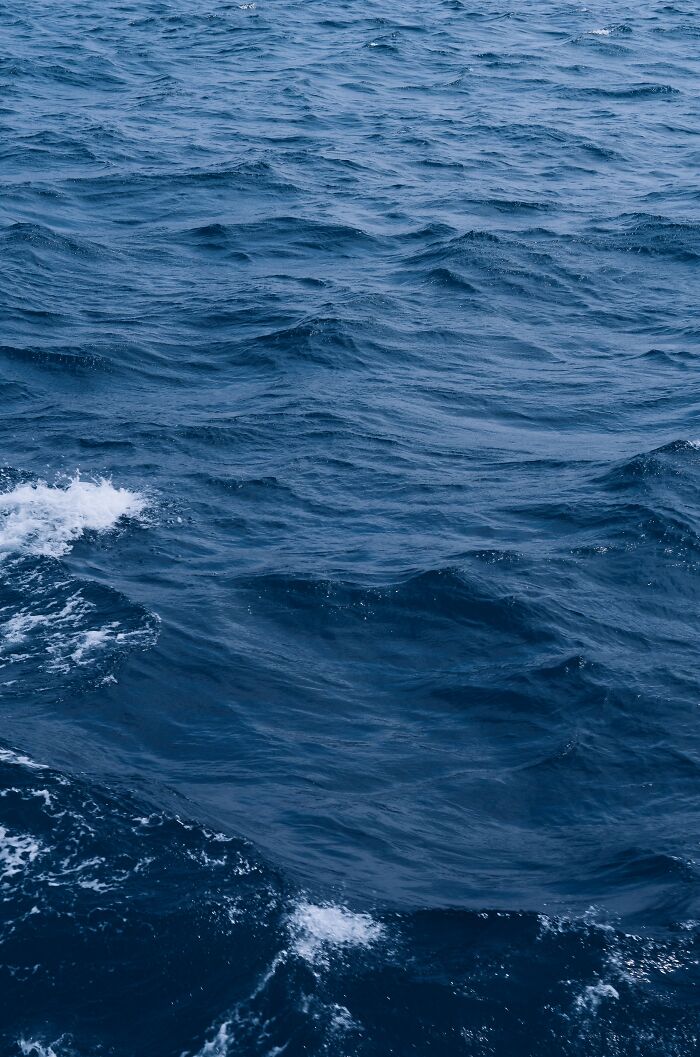 Point Nemo is the most isolated place in the world. It's in the middle of the South Pacific gyre, which is a massive rotating current that basically keeps any nutrients rich water from ever getting in. So there is no sea life anywhere to be found except for a few crabs and bacteria that live near some thermal vents on the ocean floor. It's so far away from any land that if you sailed there the closest people would be on the international space station. This is the location HP Lovecraft was describing when he provided the location of R’Lyeh where Cthulu and the other old ones love, although Lovecraft's coordinates were slightly off.
And in 1997 the loudest unidentified underwater sound ever recorded, known as "the bloop", originated near there. It was loud enough that it was recorded from multiple sensors 5000 miles apart and lasted for over a minute.
The prevailing theory is that it was ice cracking off the south pole but we don't actually know what caused it for sure.
Point Nemo is the most isolated place in the world. It's in the middle of the South Pacific gyre, which is a massive rotating current that basically keeps any nutrients rich water from ever getting in. So there is no sea life anywhere to be found except for a few crabs and bacteria that live near some thermal vents on the ocean floor. It's so far away from any land that if you sailed there the closest people would be on the international space station. This is the location HP Lovecraft was describing when he provided the location of R’Lyeh where Cthulu and the other old ones love, although Lovecraft's coordinates were slightly off.
And in 1997 the loudest unidentified underwater sound ever recorded, known as "the bloop", originated near there. It was loud enough that it was recorded from multiple sensors 5000 miles apart and lasted for over a minute.
The prevailing theory is that it was ice cracking off the south pole but we don't actually know what caused it for sure.
The Gulf Stream is created by the melting of ice from the north polar ice cap. That ice cap is rapidly disintegrating. Once it's gone, the Gulf Stream is gone. Once the Gulf Stream is gone, the weather pattern for the whole northern hemisphere dramatically changes. This will be catastrophic.
Spence also argues that the best way to reduce marine pollution is the reduction of waste. “Remember Reduce, Reuse, Recycle? We often talk about recycling, but these three actions are in priority order. If we bring people together from a variety of perspectives and focus on reduction of waste at the sources, I am sure we can make a positive impact on ocean pollution,” she concluded.
Moreover, World Listening Day is coming up on Monday, July 18th. "It's a good time to be putting a focus on ocean sound and noise. I'm the theme creator this year and here's the short video where I announce it," Heather Spence added.
Complexity at Sea
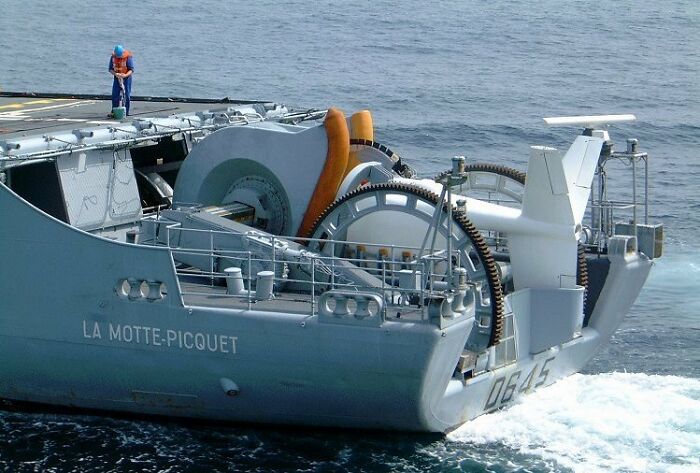 The sonar we use for deep sea mapping really screws up a number of species especially whales, dolphins and porpoises. Imagine walking around and a tornado alarm decibel-level noise triggers right next to you. We do that every time we use that high-powered sonar and it basically f's up their own sonar abilities causing them to be unable to communicate and navigate.
The sonar we use for deep sea mapping really screws up a number of species especially whales, dolphins and porpoises. Imagine walking around and a tornado alarm decibel-level noise triggers right next to you. We do that every time we use that high-powered sonar and it basically f's up their own sonar abilities causing them to be unable to communicate and navigate.
Depending on the person then this could be scary or really cool. Oceans can have underwater oceans, rivers and waterfalls. Due to different water temperatures and density and all that scientific nonsense.
Chill Above the Tropics
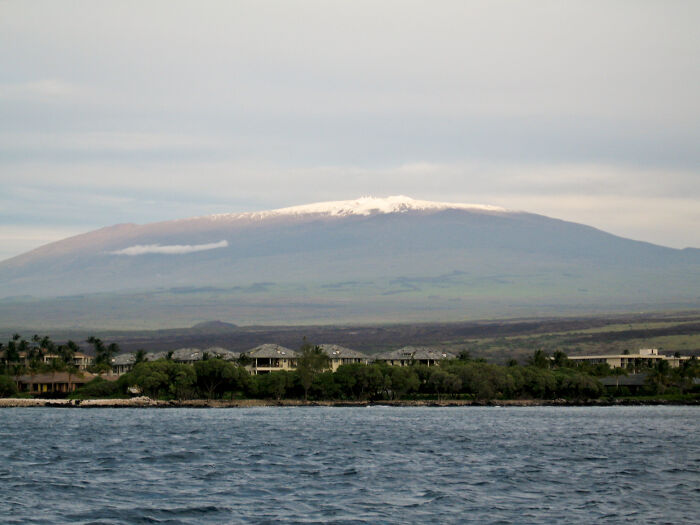 The Mauna Kea Volcano in Hawaii is the both the tallest Undersea mountain and the tallest volcano Hawaii. It sits 6000 meters below the surface of the ocean and stands a staggering 4000m above. Giving it an overall height from ocean floor to peak of 10,000m.
The Mauna Kea Volcano in Hawaii is the both the tallest Undersea mountain and the tallest volcano Hawaii. It sits 6000 meters below the surface of the ocean and stands a staggering 4000m above. Giving it an overall height from ocean floor to peak of 10,000m.
Once you get to a certain depth your buoyancy changes and you actually start get pulled down instead of floating up
Endless Blue Wonder
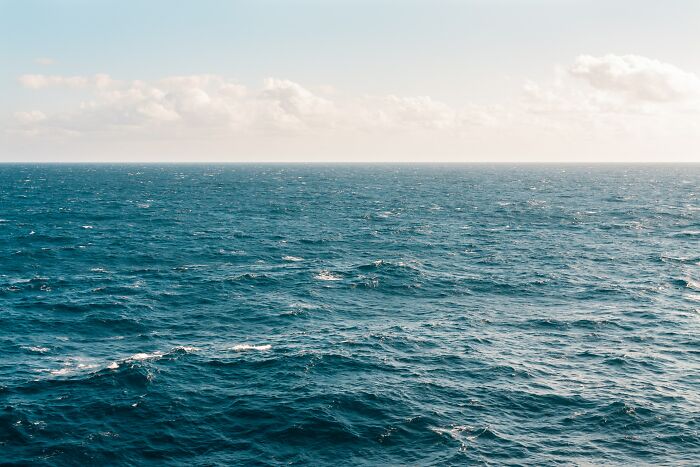 Ocean Acidification.
Increasing concentrations of atmospheric carbon dioxide (CO2) lead to higher concentrations of dissolved CO2 in surface seawater. This results in ocean acidification, which may affect the growth of the photosynthetic phytoplankton that form the basis of marine food webs.
So, total marine ecosystem collapse due to greenhouse emissions, the ocean produces more than half of the oxygen on earth, so that doesn't bode well for us.
Ocean Acidification.
Increasing concentrations of atmospheric carbon dioxide (CO2) lead to higher concentrations of dissolved CO2 in surface seawater. This results in ocean acidification, which may affect the growth of the photosynthetic phytoplankton that form the basis of marine food webs.
So, total marine ecosystem collapse due to greenhouse emissions, the ocean produces more than half of the oxygen on earth, so that doesn't bode well for us.
You can change the "may affect" in "affects" since this is already happening. One lifeform that thrives in this environment is toxic algae. Crabs are eating these and become so poisonous themselves that they are not fit for consumption anymore.
Well Crippin should have dumped his wifes remains in the ocean because not an ounce of food goes to waste including the bones. If you need to get rid of a mass grave don't bury dump at sea and the entire body will be eaten which will actually be beneficial to the ecosystem as a whole. We shouldn't be burying people but dumping them at sea.
Unfiltered Morning Mood
 94% of the Earth's oceans are just pitch black darkness.
https://www.deepseanews.com/2014/11/we-dont-know-the-ocean/
94% of the Earth's oceans are just pitch black darkness.
https://www.deepseanews.com/2014/11/we-dont-know-the-ocean/
Smooth Sailing Ahead
 If you commit suicide by jumping off a ship in deep water you will never be found, happens often enough on cruise ships, in those warm waters you'll be nibbled away before you gain buoyancy and return to the surface
If you commit suicide by jumping off a ship in deep water you will never be found, happens often enough on cruise ships, in those warm waters you'll be nibbled away before you gain buoyancy and return to the surface
So, theoretically, dumping a body in deep water makes sure it never gets found? Just theoretically, mind you. Also, just asking for a friend, who most certainly exists.
Diving Into the Unknown
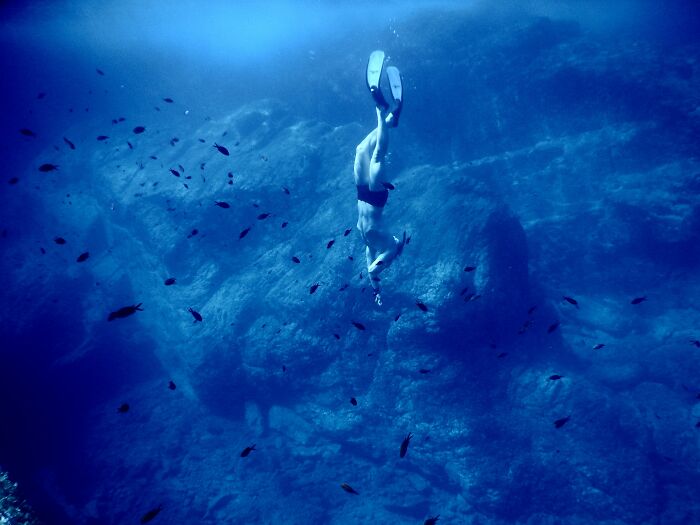 The ocean is blue because all the other pigments are absorbed. So after a certain distance down everything thing becomes a monotone blue color, unless you have some other light source.
The freaky part is if a diver gets cut underwater the blood looks black, like ink. All the red has long since been absorbed so there’s no wavelengths left to show you a red color when you bleed.
The ocean is blue because all the other pigments are absorbed. So after a certain distance down everything thing becomes a monotone blue color, unless you have some other light source.
The freaky part is if a diver gets cut underwater the blood looks black, like ink. All the red has long since been absorbed so there’s no wavelengths left to show you a red color when you bleed.
Cosmic Whispers
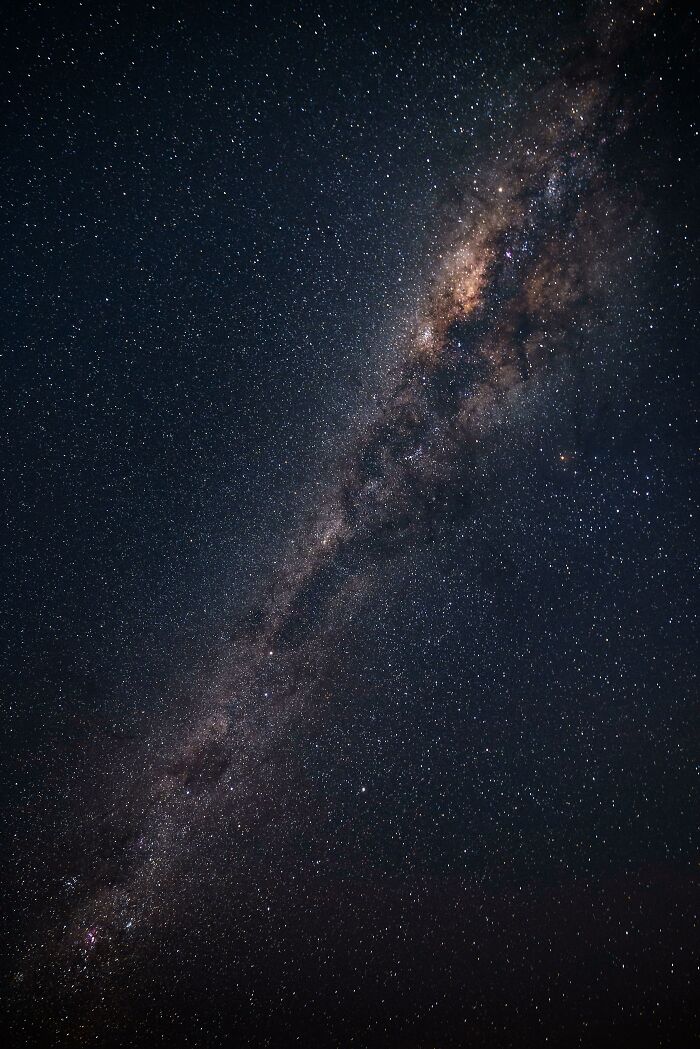 There are more viruses in the ocean than there are stars in the Milky Way.
There are more viruses in the ocean than there are stars in the Milky Way.
Depths of the Unexpected
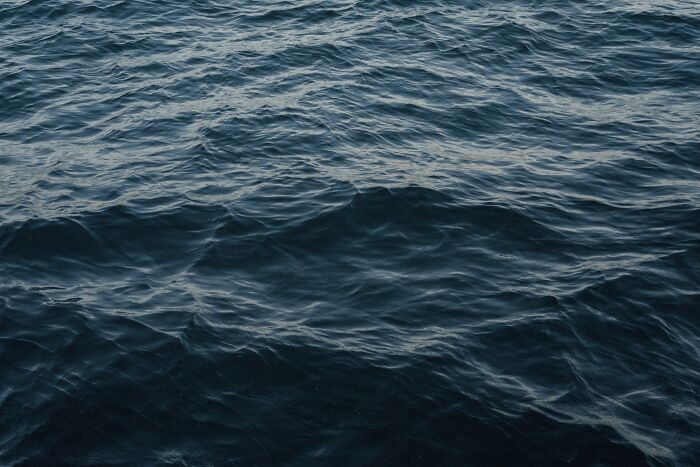 There are parts of the ocean which are dead no oxygen in the water which means nothing can survive, no fish no plankton nothing at all. They are spreading exponentially. Whilst they are tiny now and have been. At the rate of growth. They’ll cause serious problems before the end of the century.
There are parts of the ocean which are dead no oxygen in the water which means nothing can survive, no fish no plankton nothing at all. They are spreading exponentially. Whilst they are tiny now and have been. At the rate of growth. They’ll cause serious problems before the end of the century.
Chasing Blue Whispers
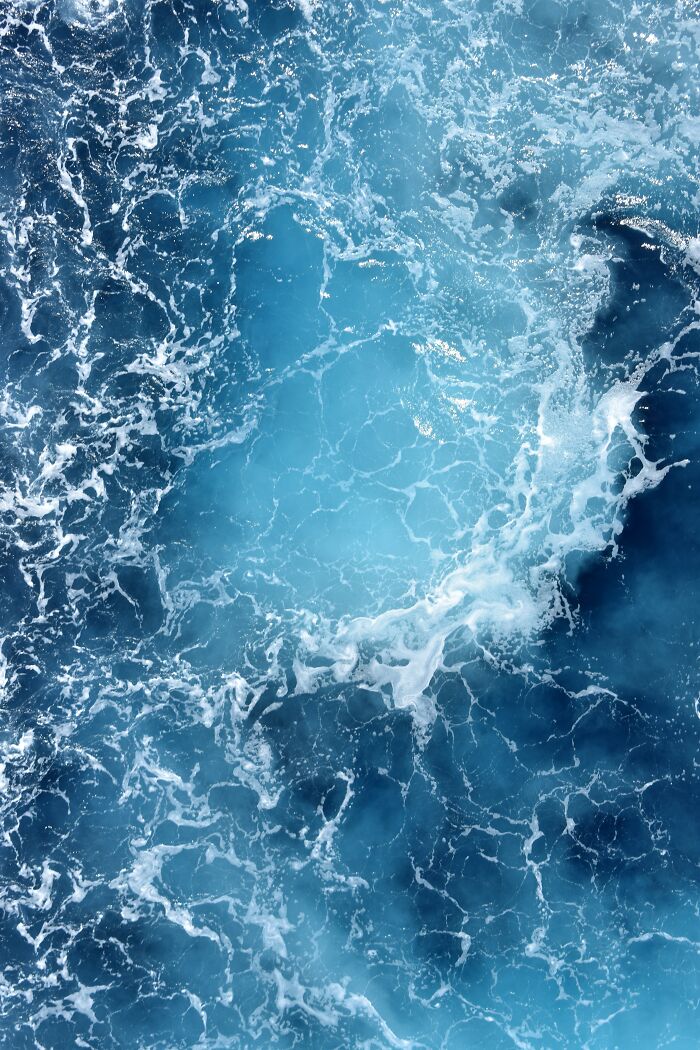 The fact that scientists think we have discovered more of outer space than we have of the oceans just scares me considering we don’t even know how big our universe is
The fact that scientists think we have discovered more of outer space than we have of the oceans just scares me considering we don’t even know how big our universe is
I always find this such a strange and dishonest comparasion. We have mapped the sort of large scale structure of the observable universe. At the same time, we've only mapped about 1% of our own galaxy, not to mention any other galaxy. And only 4.6% of everything in the observable universe is ordinary matter, the rest is dark matter and dark energy which _we're not even sure what that is _. That 4.6% ordinary matter is calculated to be there, but we've only actually observed the tiniest fraction of it.
Silent Depths Speak Volumes
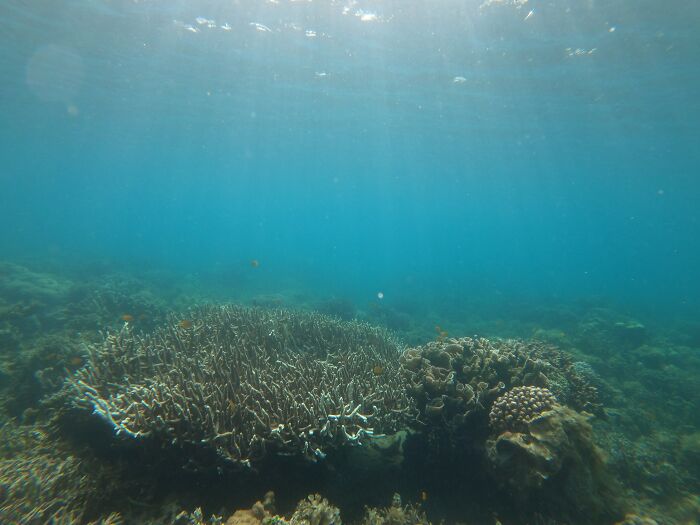 When sea creatures die in the ocean and their bones sink to the deep ocean floor, zombie worms eat the bones. The skin secretes an acid dissolving the bones, digesting the remaining fat and protein left behind.
When sea creatures die in the ocean and their bones sink to the deep ocean floor, zombie worms eat the bones. The skin secretes an acid dissolving the bones, digesting the remaining fat and protein left behind.
There are HUGE plastic islands in every ocean. It's horrible!
Fluid Moves Only
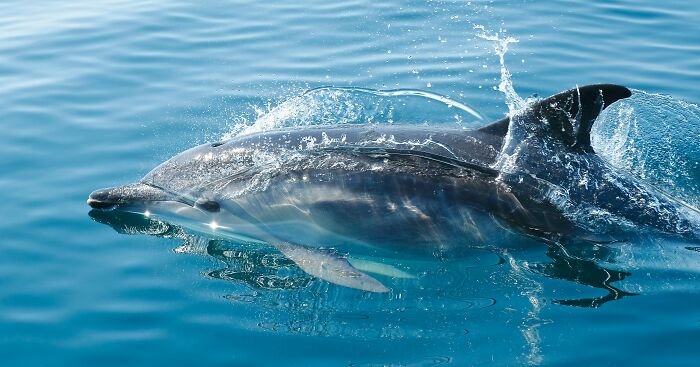 Dolphins will r*pe almost any living thing, including humans.
They do thus so much to the point where sharks are scared to go near them.
Also Whales don't die of old age
Rather, as they become older, their muscles become weaker causing them to not be able to swim and, as a result, drown, meaning that it's almost impossible for a whale to die of old age
Dolphins will r*pe almost any living thing, including humans.
They do thus so much to the point where sharks are scared to go near them.
Also Whales don't die of old age
Rather, as they become older, their muscles become weaker causing them to not be able to swim and, as a result, drown, meaning that it's almost impossible for a whale to die of old age
If whales are dying because as they get old their muscles become weak then they die of old age (alternatively, you can claim that no one dies of old age. It is just a matter of your point of view on things)
Forgotten and Adrift
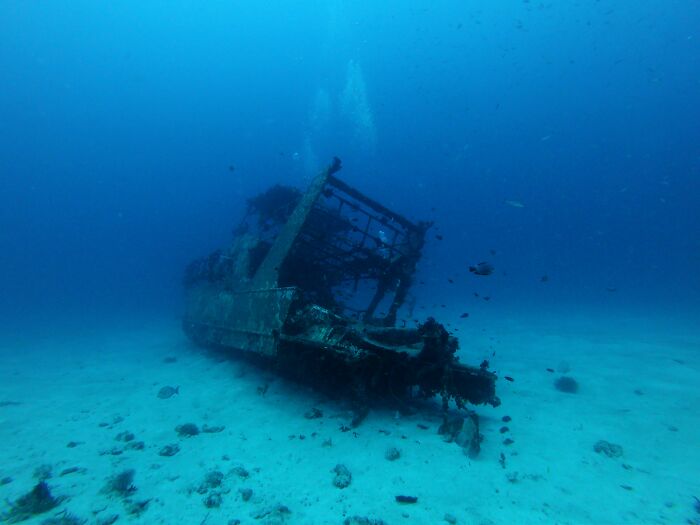 Its well known but I feel like people just disregard how much stuff we've lost in the ocean.
Like important pieces of history, military ships, planes, PEOPLE.
And it's not just recent history? Like we still are finding ancient ships and mechanical things, skeletal remains and so on.
That and all the statues and cities and things we've found sunk is incredibly terrifying. Because we just didn't know they were there?
Like not including the things we haven't explored in the ocean that's native to the ocean, we have so much stuff to find in there.
Like we still *technically* don't know what happened to Amelia Earhart. We think we found what might've been her remains on an island but we don't know if that was her or not. And where's her plane?
Not to mention that while we have no clue how common it is people dump bodies in the ocean.
Like. The ocean is a massive graveyard for bodies, vehicles and history.
Its well known but I feel like people just disregard how much stuff we've lost in the ocean.
Like important pieces of history, military ships, planes, PEOPLE.
And it's not just recent history? Like we still are finding ancient ships and mechanical things, skeletal remains and so on.
That and all the statues and cities and things we've found sunk is incredibly terrifying. Because we just didn't know they were there?
Like not including the things we haven't explored in the ocean that's native to the ocean, we have so much stuff to find in there.
Like we still *technically* don't know what happened to Amelia Earhart. We think we found what might've been her remains on an island but we don't know if that was her or not. And where's her plane?
Not to mention that while we have no clue how common it is people dump bodies in the ocean.
Like. The ocean is a massive graveyard for bodies, vehicles and history.
The recent coverage of vessels and bodies found in Lake Mead certainly validates this post. If so much has been found in a smaller body of water, how much more is buried in the ocean.
Calm Before the Storm
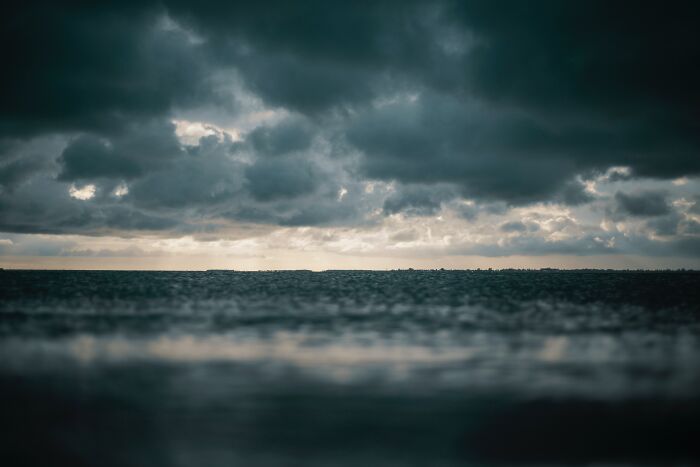 Just one millilitre of coastal water taken from the ocean's surface can contain up to 10 million viruses. The number of viruses decreases further offshore and deeper into the water.
Just one millilitre of coastal water taken from the ocean's surface can contain up to 10 million viruses. The number of viruses decreases further offshore and deeper into the water.
The deepest level of the ocean, the hadal zone or the hadopelagic zone (the terms are interchangeable), is so far underwater that there is little to no oxygen. It averages around 1100 standard atmospheres, which is like 16000 psi. For reference, the standard atmosphere of Earth is around 14 to 15 psi. For context, the hadal zone is anywhere from 6,000 to over 10,000 meters below sea level, and we really can't be 100% sure that Challenger Deep in the Mariana Trench is the deepest part of the ocean, since we've only mapped around 20% of Earth's oceans. Good news: it's unlikely any giant sea monsters live in the hadal zone. It's not exactly a habitable place. Bad news: animals, especially sea creatures, can adapt to incredibly harsh conditions. This is the result of a Googling binge I did a few weeks back when I started looking into deep sea creatures to base a terrifying mermaid off of.
Scientists found a plastic bag at the bottom of the Mariana trench.
It’s a little known fact that the ocean has extremely high levels of DHMO in it (dihydrogen monoxide). This substance is incredibly dangerous when inhaled, and it leads to suffocation. It’s literally everywhere in the ocean and no one seems to mind or even care
Endless Blue Mystery
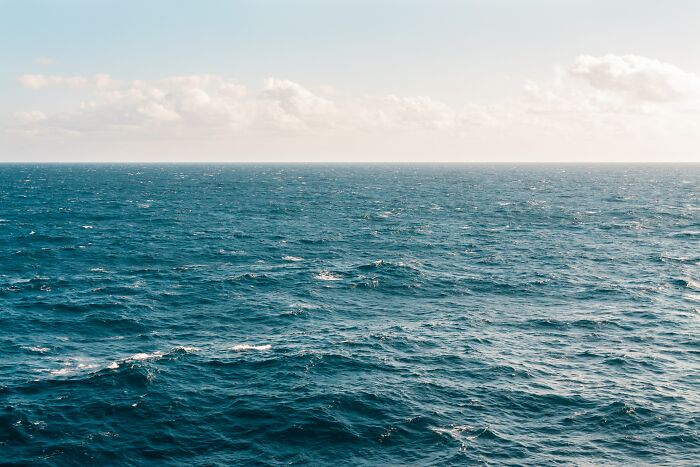 Each ocean is a mass gravesite and we all go swimming in it and some of us end up in it
Each ocean is a mass gravesite and we all go swimming in it and some of us end up in it
That it's expected to be septic by 2050.
Giant Splash Moment
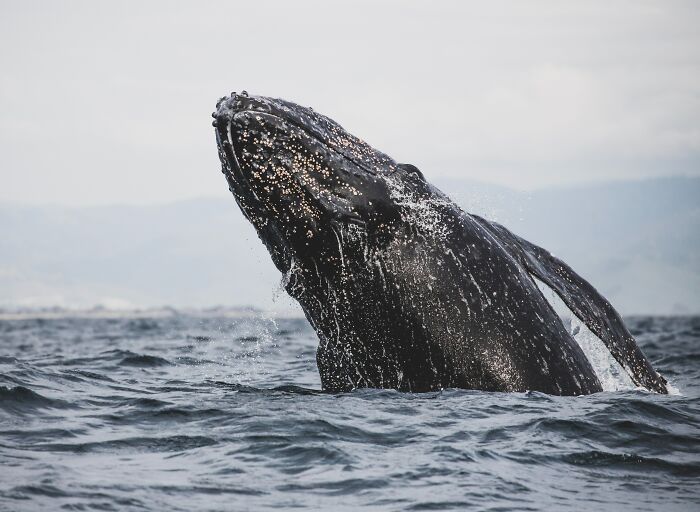 Blue Whales cum 20 litres of sperm each time they ejaculate. That's gotta leave a taste.
Blue Whales cum 20 litres of sperm each time they ejaculate. That's gotta leave a taste.
Any time you're in the ocean you're swimming with some number of dead bodies in the same body of water as you. This isn't an unknown fact but it's disturbing to think about and it's always creeped me out.
You're in the same atmosphere as some number of dead bodies as you right now.
Silent Depths
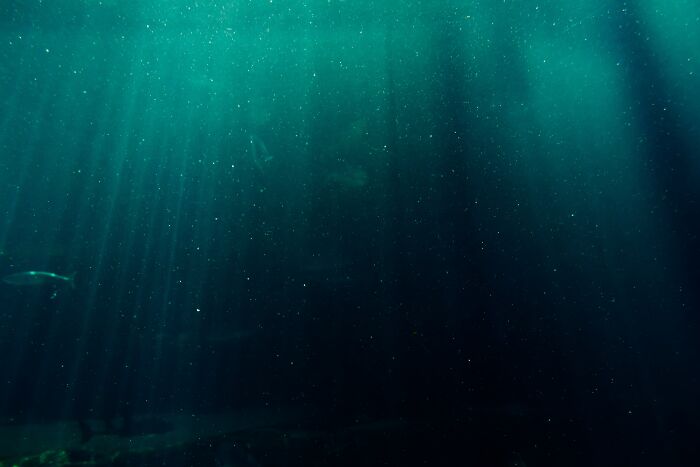 90%of the sea-biomass is located in the deepsea, and 60% of the deep sea biomass is only lantern fish
90%of the sea-biomass is located in the deepsea, and 60% of the deep sea biomass is only lantern fish
Megaladons could still exist we just don't know because of how deep the ocean is
This one has been pretty comprehensively debunked. https://www.youtube.com/watch?v=0p_Z_d6N4-w
There was a time when whales were considered pray in the food chain
Whales always drown to death. They get too old and tired to swim back to the surface.
Except when a Japanese “research” harpoon is exploded through their heads, but yeah, if left alone to live a ripe old age, they will one day, fail to surface.
Well this was full of inaccuracies or just false claims, I guess it goes to show how little we know about the ocean? 😅😂
Sources???? This is Bored Panda. We don't need no stinkin' sources!!
Load More Replies...Well this was full of inaccuracies or just false claims, I guess it goes to show how little we know about the ocean? 😅😂
Sources???? This is Bored Panda. We don't need no stinkin' sources!!
Load More Replies...
 Dark Mode
Dark Mode 

 No fees, cancel anytime
No fees, cancel anytime 






